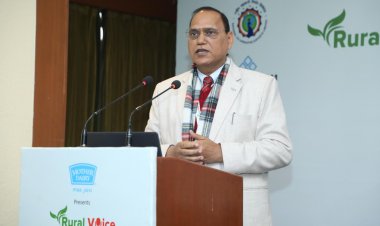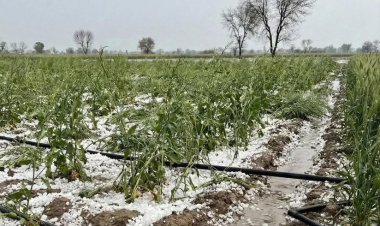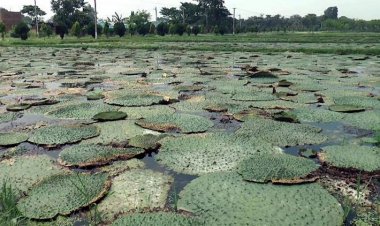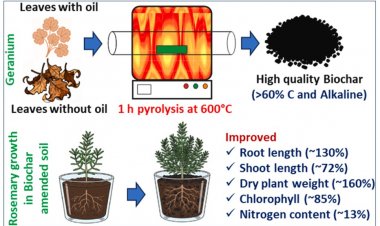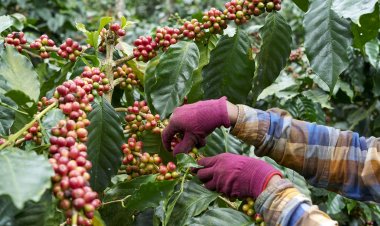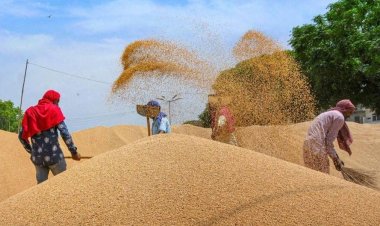Higher Proportion of Spurious Pesticides from Small Companies; Traces of Chemicals in Organic Pesticides
An analysis of recent test results highlights the issue starkly. Over 90% of pesticide samples from large companies meet quality standards. However, more than 20% of the samples from small companies are found to be substandard or spurious.
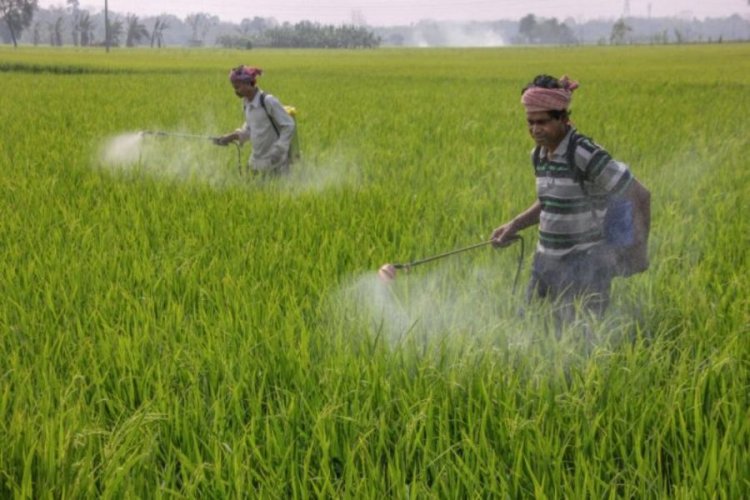
The sale of spurious pesticides has emerged as a growing threat to farmers across the country, raising concerns about agricultural productivity and food safety. While the government conducts periodic tests on pesticide samples from various manufacturers, the testing rate for smaller companies remains disproportionately low. Alarmingly, data suggests that a significant percentage of pesticides from these small manufacturers fail quality tests.
An analysis of recent test results highlights the issue starkly. Over 90% of pesticide samples from large companies meet quality standards. However, more than 20% of the samples from small companies are found to be substandard or spurious. In Uttar Pradesh, for instance, out of 7,369 samples tested from large companies, 7,024 passed, while 293 failed. In contrast, only one sample per company was tested from 159 small manufacturers, revealing a failure rate of approximately 24%- with 38 out of 159 samples failing quality checks.
Adding to the concern, several states have reported that pesticides marketed as "organic" were found to contain traces of chemical pesticides upon testing, misleading consumers and undermining organic farming practices.
Experts argue that increasing the sampling and testing of products from small companies is critical to curbing the sale of spurious pesticides. They stress the need for more stringent quality control measures, enhanced regulatory oversight, and improved enforcement to protect farmers from ineffective or harmful agricultural inputs. These findings were obtained through data accessed via the Right to Information (RTI) Act, underscoring the urgent need for policy interventions to address this growing challenge.
Uttar Pradesh: 22% Samples from Small Companies Found Spurious
According to the information provided under the RTI, 634 companies were operating in Uttar Pradesh between 2020-21 and 2022-23. Out of these, more than 500 samples were taken for testing from 11 large companies, while only one sample was taken from each of 159 small companies. Out of a total of 21,235 samples, 7,369 samples from the 11 large companies were tested, of which 7,024 were found to be correct and 293 failed. The next category included 32 companies, with 7,633 samples being tested, of which 7,033 passed and 381 failed. Companies in this category had between 100 to 500 samples tested. Thirty-one companies had between 51 to 100 samples tested, totaling 2,115 samples, of which 1,990 were correct. Only 124 samples from the 159 companies, each having just one sample tested, were found to be correct, while 38 samples, or about 24%, failed. Another point to note is that 71% of the samples were from the first two categories of companies. Companies with just one sample tested made up only 1% of the total samples.
Major pesticide-selling companies in the state include Insecticides India Limited, Dharmuka Agritech Limited, Tropical Agro Systems India Pvt. Ltd., Sumitomo Chemicals India Limited, Bayer Crop Science Limited, UPL Limited, among others. More than 500 samples were taken from each of these companies.
Rajasthan: 13% Samples of Small Companies Fail in Tests
Rajasthan has categorized companies into categories A, B, C, etc. Companies with a good quality track record are placed in category A, companies with a satisfactory track record are placed in category B, and companies that need further improvement are placed in category C. New companies are placed in category N, and companies that do not fit into any of these categories are placed in the Non-Descriptive (ND) category.
Between the years 2019-20 and 2023-24, 390 company samples were tested. Of these, 33 companies were in category A, 43 in category B, 197 in category C, and 80 in the ND category. The highest number of samples, 8,044, were taken from companies in category A. For category B companies, 2,525 samples were tested, 1,315 samples from category C companies, and 1,114 samples from ND category companies. Samples were not taken from 37 companies in category N.
99% of the samples from category A, B, and C companies passed the tests, whereas only 87% of the samples from the ND category were found to be correct. In other words, only 1% of the samples from the first three categories failed, while 13% of the samples from the ND category did not pass.
Among the category A companies selling pesticides in the state are Advanced Agro Life Private Limited, Agroking Pesticides Private Limited, Asian Agro Industries, Bayer Crop Science Limited, Crystal Crop Protection Limited, Dharmuka Agritech Private Limited, Iffco Crop Science Private Limited, Rallis India Limited, and Saraswati Agro Chemicals.
Telangana: 99% of Large Companies' Samples, 85% of Small Companies' Samples Found Genuine
Between 2017-18 and 2021-22, pesticide-selling companies in Telangana were categorized into six groups. Category A had 8 companies, B had 29, C had 17, D had 59, E had 79, and F had 48 companies. In Category F, only one sample per company was taken for testing, whereas in Category A, more than 500 samples per company were tested.
Out of a total of 19,280 samples collected in the state, 9,430 belonged to Category A companies, and 6,572 were from Category B companies. More than 99% of the samples from both categories were found to be correct. Nearly 99% of samples from Category C companies also met quality standards. For Category D companies, 97% of samples were correct, for Category E, it was 87.39%, and for Category F, it was 85.42%. Companies in the first two categories accounted for 83% of the total samples.
Odisha: 70.59% of Category A Companies’ Samples Found Correct
Between 2017-18 and 2022-23, Odisha had 3 companies each in Categories A and B, 2 in Category C, and 128 in Category D. Surprisingly, no samples were taken for testing from any of the Category D companies. Only one sample each from the two Category C companies was tested.
Out of the total 136 companies, only 43 samples were tested, of which 34 belonged to Category A companies. Among these, only 70.59% of the samples were found correct. In Category B, 5 out of 7 samples met quality standards. Both tested samples from Category C companies were found correct.
Tamil Nadu: Over 71% of Tested Samples Belonged to Large Companies
Between 2017-18 and 2021-22, a total of 93 companies were engaged in manufacturing and selling pesticides in Tamil Nadu. Among them, only one company, Jai Krishna Pesticides Limited, was in Category A. The remaining included 11 in Category B, 6 in Category C, 22 in Category D, 38 in Category E, and 15 in Category F.
A total of 558 samples were taken from Jai Krishna Pesticides Limited, out of which 544 were tested, and 535 were found correct. Out of the total 4,088 samples tested, 2,362 were from Category B companies, 450 from Category C, 530 from Category D, 173 from Category E, and 15 from Category F. More than 71% of the total samples belonged to Category A and Category B companies.
Karnataka: Presence of Chemicals Found in 250 Bio-Pesticide Samples
An RTI (Right to Information) report has exposed a startling revelation: an analysis of 250 pesticide samples, marketed as bio-based in Karnataka, found that every single one contained chemical pesticides. These so-called "bio-products" were tainted with chemicals like Emamectin and Abamectin- illegally imported from China. Even more alarming, around 30 samples contained Nitenpyram, a pesticide not even registered in India.
The issue came to light on February 17, 2020, when the Deputy Agriculture Officer (DAO) of Bengaluru issued a letter to all Joint Directors, enclosing test results from 100 samples. The DAO directed them to take action against the manufacturers, who not only misled farmers but also posed serious health risks to both farmers and consumers. Additionally, the deception resulted in government losses in GST and other taxes. However, despite these instructions, little action was taken. It wasn’t until May 5, 2020, when the Agriculture Secretary issued another directive - this time holding inspectors accountable for inaction - that enforcement efforts finally began.
Despite the gravity of the issue, the Karnataka government’s response was far from stringent. Instead of imposing severe penalties, authorities merely booked the offenders under the Pesticide Act of 1968, which lacks provisions for strict punishment. Meanwhile, farmers using these mislabeled bio-pesticides faced harsh consequences, including the rejection of their produce in export markets.
Illegal pesticide imports occur through two primary methods. The first involves misdeclaration, where high-value pesticides costing $100–200 per kilogram are falsely declared as inexpensive amino acids, priced at just $0.5 per kilogram. Sometimes, these costly chemicals are disguised as harmless substances like sodium bicarbonate or thionyl chloride. The second method exploits fake exports and re-imports: a low-cost product is officially exported, only to be "rejected" and replaced with high-value pesticides during re-importation.



 Join the RuralVoice whatsapp group
Join the RuralVoice whatsapp group


















